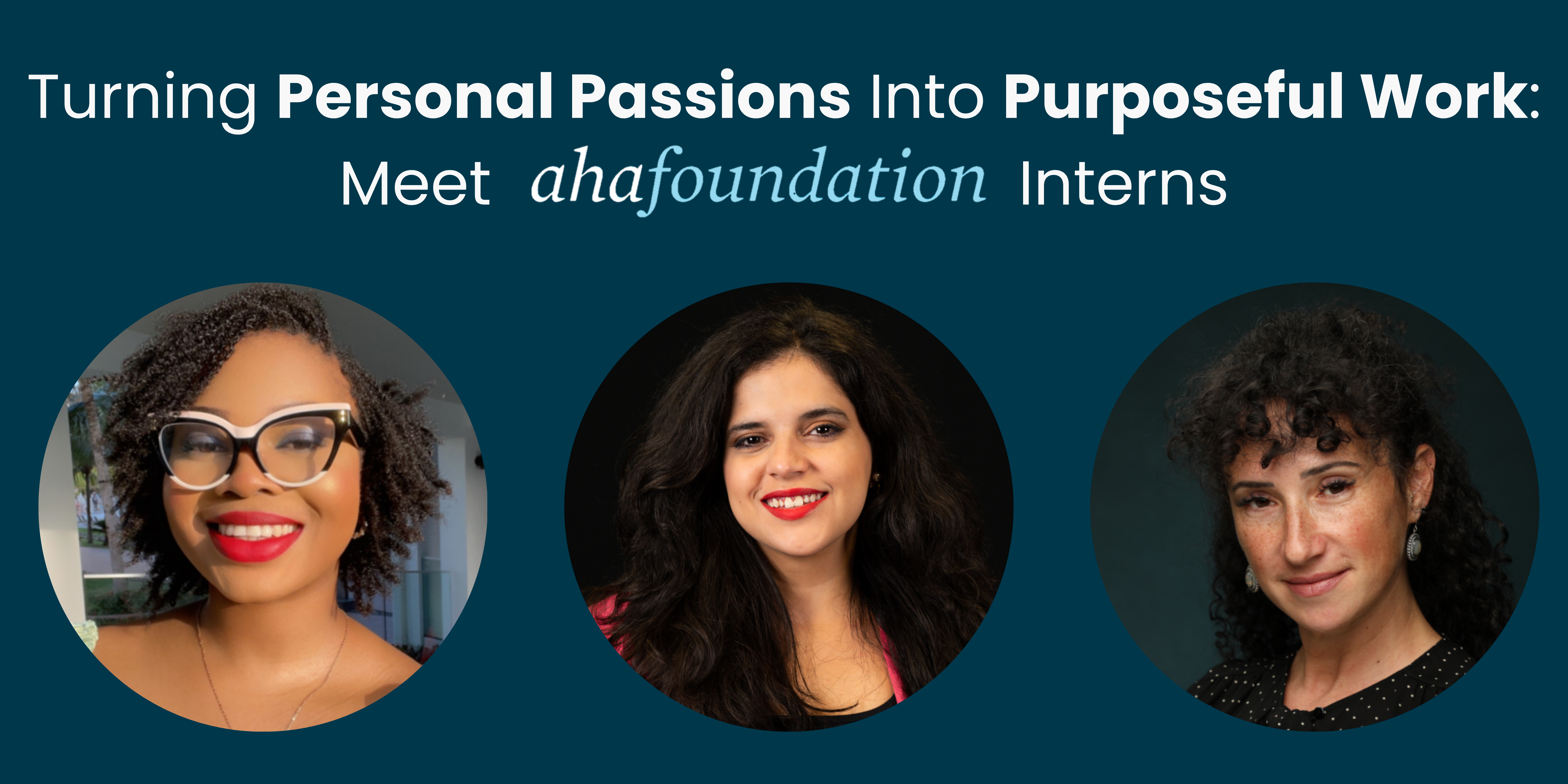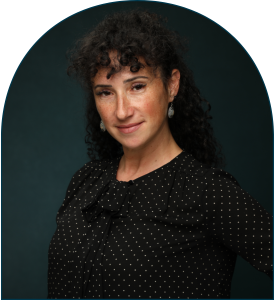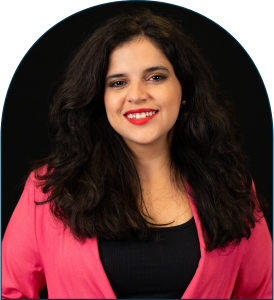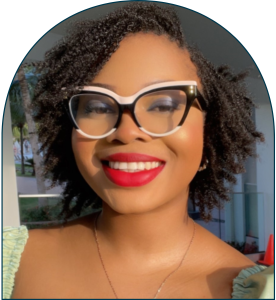Turning Personal Passions Into Purposeful Work: Meet AHA Foundation Interns

Published: 7/24/2024
Golbon was born in the Bahá’í community in Iran where her parents were not allowed to attend college and this religious minority is considered illegal. Living in a strict religious community, Rivka always appreciated having the freedom to read, leading her to learn about women experiencing abuse and having less freedom than her just because of the accident of birth. Joy saw the devastating impact of gender-based violence in Nigeria.
Different personal stories have drawn our interns to our founder’s work and the AHA Foundation’s mission where they transform their passion and experiences into purposeful work every day. Read their stories below. AHA Foundation Intern
Rivka Nathan
Development Intern
“I’ve rolled up my sleeves and I don’t plan to stop while there is still work to be done.”
I came across Ayaan Hirsi Ali when her first book, Infidel, came out. I was impressed by Ayaan as an individual, as a woman, and as an ex-Muslim who escaped her oppression—both physically and mentally.
What motivated me to work with AHA was the loss of my mother, which prompted me to re-examine my life. I was determined to join an organization that was already doing the important and necessary work to advocate for women and girls, with a strong and established voice. I consider this work not only critical, but also a personal calling.
At first, I was drawn to the awareness Ayaan was raising around the taboo subjects of female genital mutilation (FGM) and honor violence, as well as forced/child marriage. As I write this, I have just learned that finally, with the help of our allies, child marriage ended in New Hampshire, after a long seven-year battle. This is what motivates me; taking part in the work of putting Ayaan’s ideas into practice.
Despite my upbringing having many religious restrictions and laws, I was also lucky to have many freedoms. One of the most important was the freedom to read anything I wanted without restriction.
I read books about women in other cultures and religions that experienced things like polygamy, honor violence, FGM and myriad other atrocities I had not been subjected to simply by accident of birth. Fast-forward 30 years when I rediscovered the very same abuses are still happening and there is so much more to do.
That’s what I’m doing here. I’ve rolled up my sleeves and I don’t plan to stop while there is still work to be done.
Golbon Marandiz
Data Analyst Intern
“I will take the temporary discomfort of speaking up over prolonged censorship and polarization in my environment, any day.”
As a former political and religious refugee living in the U.S., I really resonate with Ayaan’s work in fighting extremism and promoting freedom of speech and religion.
Growing up as a Baháʼí, I witnessed the strength of my community as they secretly gathered in Iran, where being a Baháʼí is criminalized. My mother was a Sunday school teacher in Iran as well. I remember feeling the weight of being a Baháʼí from a very young age, but being confused as to why my family would emphasize on leading with love even towards people who showed us so much hate.
As I grew older and became more aware of the teachings, I realized it was instilled in me from a young age to hold space for individuality and differences. Although I am not religious now, growing up Baháʼí and experiencing persecution made me grateful for different perspectives and also vigilant in wanting to safeguard my liberties I have today.
AHA Foundation has opened my network to some incredible people who share similar passions. I’ve been able to see my work’s impact and am looking forward to continuing to see how data drives causes!
My advice to young individuals who are passionate about human rights and want to get involved in similar work is to “take a breath.” Make sure you are taking care of yourself and your own emotional wellbeing before diving in. When I got involved with Woman, Life, Freedom advocacy I definitely led from trauma in the beginning which can cause burnout and also divide communities. It’s important to be passionate but sustainability is more important. I also recommend always learning and engaging in open discussions rather than debating.
I think while diversity should be celebrated, the most important type of diversity is thought. I plan on implementing diversity of thought and freedom of speech by leading as an example and engaging in open dialogue. I have been a bit intimidated in the past to speak up about “controversial topics” but I find that if people don’t, the extreme perspectives will win.
I think more pragmatic voices need to engage in dialogue to dilute the noise in universities, and beyond, today. I will take the temporary discomfort of speaking up over prolonged censorship and polarization in my environment, any day.
Joy Okhuevbie
Former Policy Intern
“Receiving the MPH [Master of Public Health] Practice Award for the [MPH Capstone] project was a significant achievement; the success of which was greatly influenced by AHA’s invaluable resources, guidance, and opportunities.”
The work on eradicating FGM and refusing to stay silent on these matters is what drew me to AHA Foundation and the aspect of Ayaan Hirsi Ali’s work that inspires me most. I applied for an internship because of its history of protecting women’s rights and exposing Islamist extremism (the major justification for FGM in many regions).
Growing up in Nigeria, I witnessed firsthand the devastating impact of gender-based violence (GBV) against women and girls. This experience ignited my passion for advocating for survivors and promoting gender equality. In my immediate environment, several people have undergone FGM, and I have seen firsthand the impact on their physical and emotional well-being.
These experiences deepened my understanding of the issue and strengthened my resolve to protect women and girls from such violence. I have long been actively involved in various forms of advocacy work aimed at eradicating FGM and child marriage, including community education and outreach, legislative advocacy, and professional training and education.
My academic background in Physiology and Neurobiology combined with a Master of Public Health gives me an in-depth understanding of FGM’s physiological and neurological impacts on women’s health, community health, reproductive health, and mental well-being.
My MPH Capstone project—a health policy white paper that encapsulated my extensive AHA work, with a particular focus on FGM—aimed to raise awareness, foster collaboration, advocate for legislative action, provide support to survivors, and ultimately contribute to the eradication of FGM practices in the United States. Receiving the MPH Practice Award for the project was a significant achievement; the success of which was greatly influenced by AHA’s invaluable resources, guidance, and opportunities.
My AHA work has fought against FGM and other forms of GBV through several key initiatives and efforts such as public awareness campaigns, community engagement, advocacy for legislative change, support for survivors through the legal guide provided by the foundation, training and capacity building, and collaboration and partnerships.
My next steps will be to secure a position in health policy or a related field, pursue a medical degree, and continue to advocate against GBV and FGM through policy and legislative work, research and data-driven advocacy, and public awareness and media engagement.




